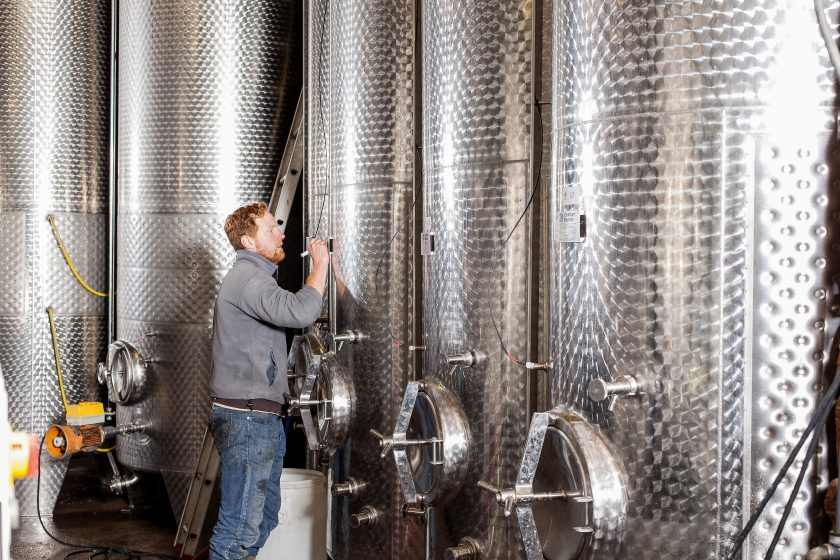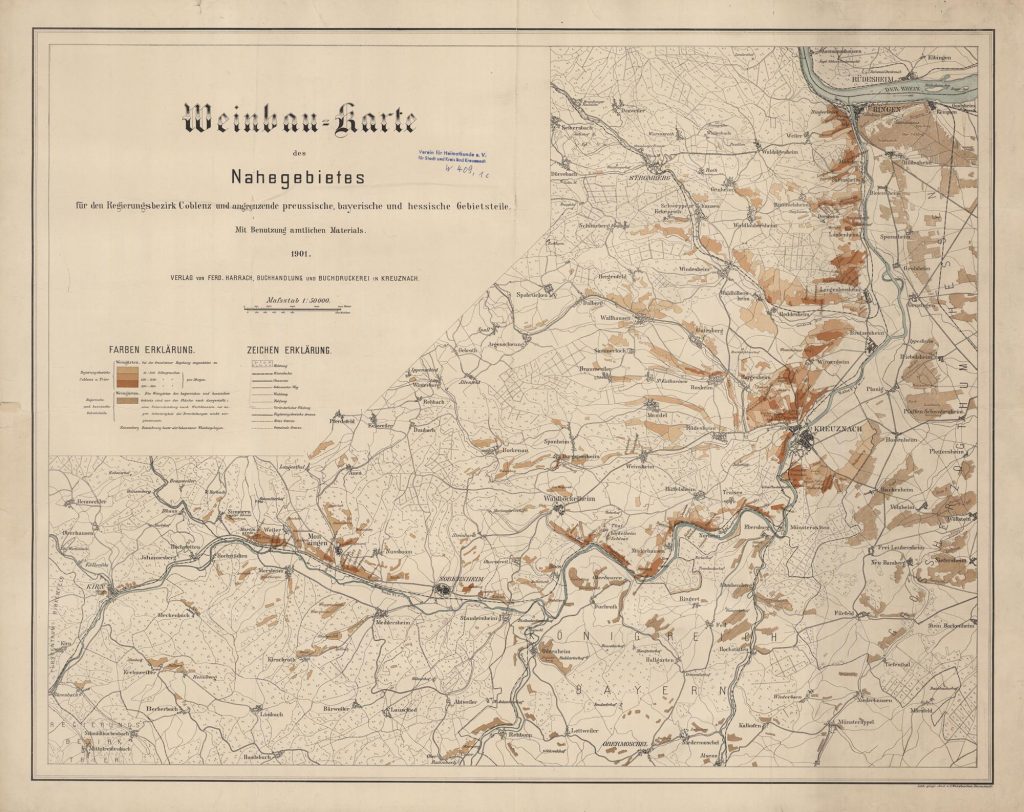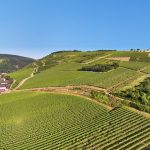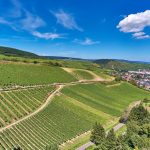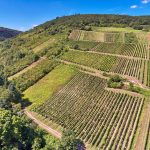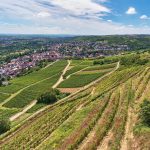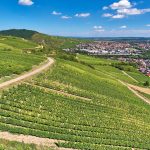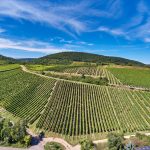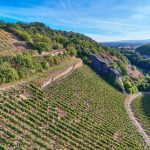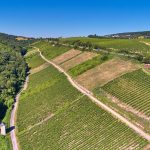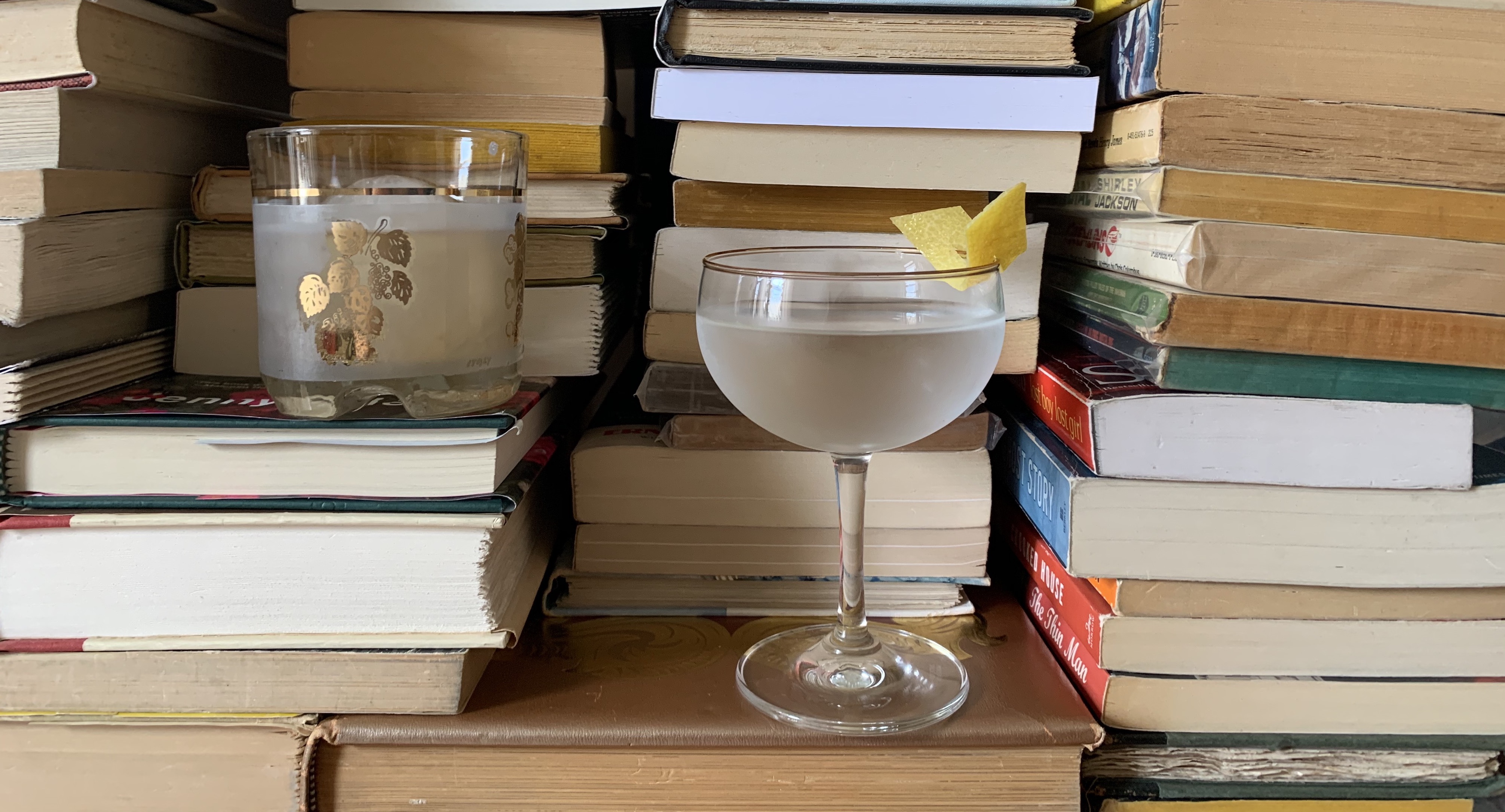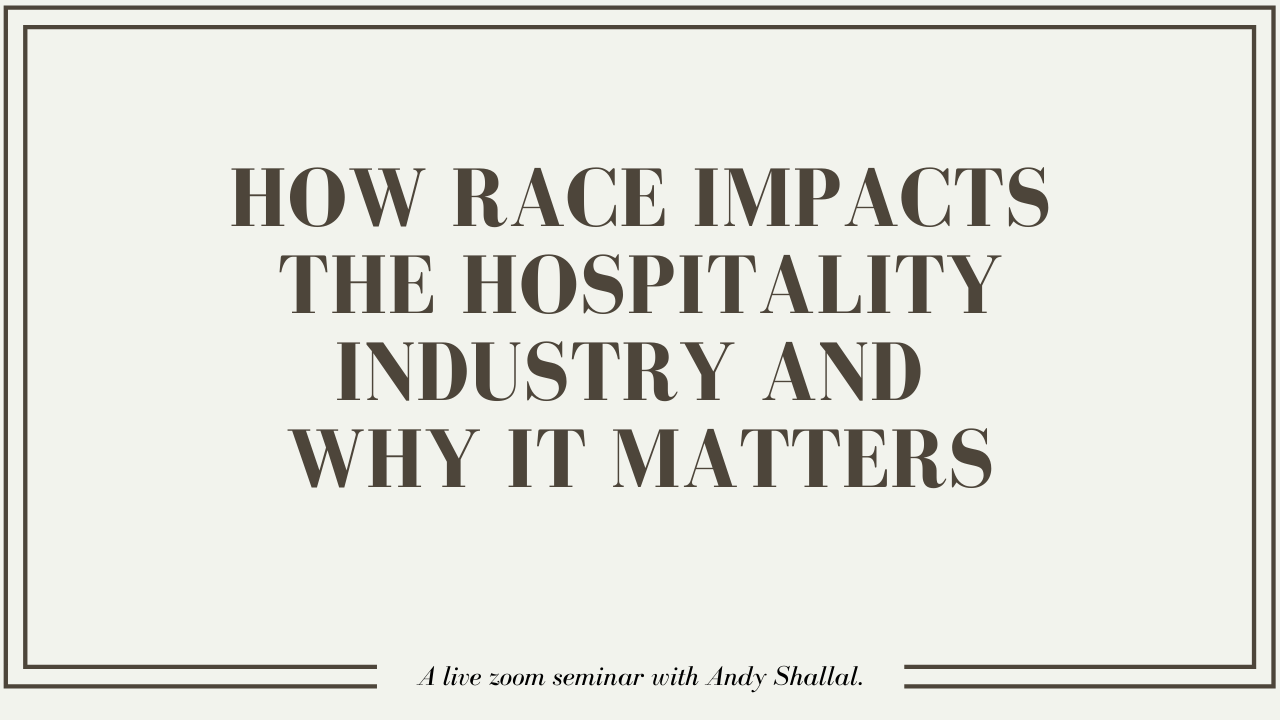Weingut Kruger-Rumpf is just south of Rüdesheim, across the Rhein, about 40 minutes from Frankfurt airport. It’s often one of the first stops we make driving west on the A60, ripping along in whatever stick-shift German car the poor fools at the rental desk have trusted us with. The village is Münster-Sarsheim, the northernmost village in the Nahe. Even with its proximity to Frankfurt when you step out of the stuffy rental car and fill your lungs with the air in this village, you feel the vitality of place.
Here, the Nahe river cuts through the Hünsruck hills, before spilling into the Rhein. On the western side of the Nahe, lies the village Münster, with the village of Bingen, on the east side, framing beautiful gateway to the Rhein and view of the Rüdesheimer Berg. Crossing the cobble-stoned entrance to the winery, you’re greeted by kind and generous people, excellent wines and a very good restaurant, operated by Georg’s parents. It has the warmth and calm of home.
Winding up into the hills through the vines with Georg, the current owner and winemaker, is always a treat. He’s more at home behind the wheel of a station wagon, tearing through vineyards, than he is in a tasting room. “Let’s see some vineyard’s first, right?” he always says.
We’ve been watching the development at this estate in the lower Nahe for the past five vintages with a close eye. The number of sites and wines Georg produced had, at times, felt like it was bordering on too much, even for someone with as much energy as he has. Rather than expanding and complicating the winery, Georg has taken the opposite tack. There is a pure brilliance here, exhibited in the last few vintages, a paring back to what’s most important.
MAP OF THE LOWER NAHE
Click to zoom in!
THE 2019 VINTAGE
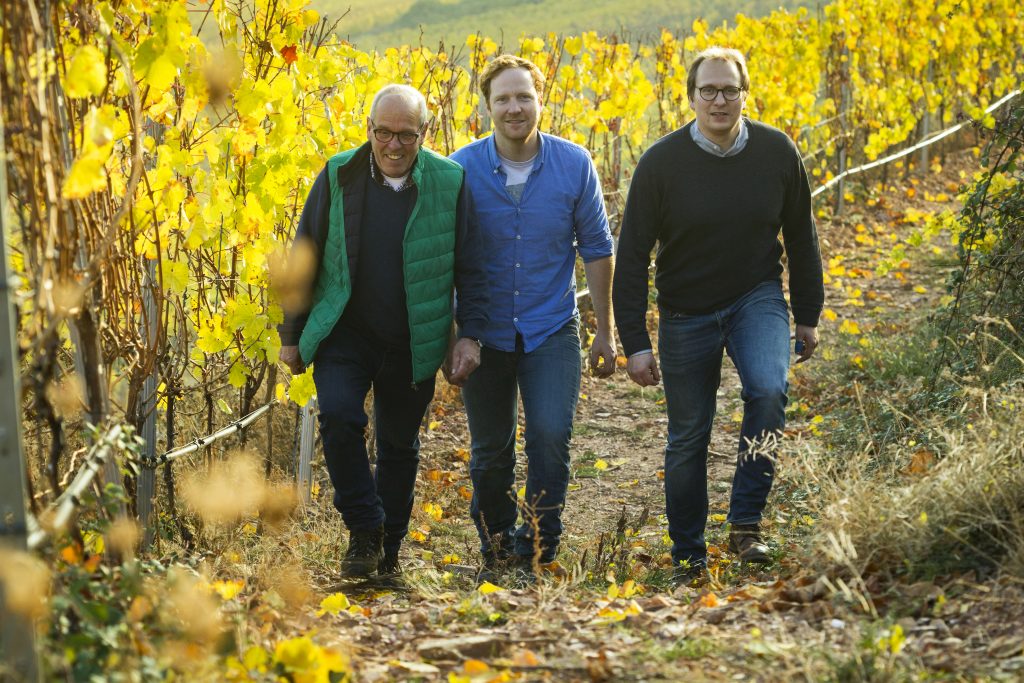
2019 felt like a turning point; no estate in this portfolio has improved as much in the last few years and this vintage felt apart even from the trajectory we’d witnessed recently; the wines were truly excellent before this current vintage. Georg Rumpf and his brother Philipp showed us wines from every quality level and style in 2019 and the collection was one of the finest we tasted.
Married, with two beautiful and distinctly “Rumpf’ girls (both with his trademark red-orange hair), Georg credits his wife Julia and the decision to start a family to where he is now. For him, this reset what was important, allowing him to see clearly what he wanted to accomplish. Together, with Julia and his brother, Philipp, they set about rethinking and reshaping the winery. It was a conscious shift; Georg knows where he wants to expend his energy and what the future of the domaine is.
Georg said once, “I know I’m not Dönnhoff and I don’t want to be. I want to make the best possible quality wines for the best price.” He to both understand the hierarchy which existed before he was born and was able to accept this with calm openness.
He has stepped well beyond that modest claim and charted a different path. He’s given up all short-term contracts and has no interested expansion, concentrating all of his efforts on his top sites. He wants to “always be continuing to improve soil health and making the best possible wines” as he says. The family is committed to organic viticulture and while they’ve been practicing organic for several years, 2019 marks the transition for Organic Certification.
“In German, we say ‘the last 5 meters’ and that is what I am trying to do. I don’t want to be safe – I am pushing forward and want to walk right up to the edge. The view from the sea is different from the faraway hill than on top of the cliff. I am committed to this path, and the risks it may pose” says Georg.
2019 is an incredible collection, top to bottom. Georg produced world-class wines across the spectrum of styles from his top sites in the lower Nahe. The 2019 Estate Riesling in both the dry and off-dry styles are best in class, with early harvested fruit from Kapellenberg and Pittersberg, two excellent sites.
There is a new dry wine Ortswein (Village) called simply Alte Reben Trocken, which will be a blend of old vines from Binger Scharlachberg (spicy, red slate, old vines on terraces across the river, technically in Rheinhessen) and Münster (older vines in Kapellenberg and Rheinberg – slate and quartz). It’s charming enough to serve to someone who doesn’t “like” Riesling, but with enough gravitas that people will ask questions. It’s a perfect wine to pour as an aperitif or to accompany a meal.
The single-vineyard collection in the dry style starts with the 2019 Abtei 1937 Riesling Trocken. Georg acquired this vineyard, the most northern site in the Nahe, in the 2015 vintage. That vintage marked a turning point in winemaking, where Georg started to find his voice. He was looking back to the traditional wines of the Nahe, the sort of style that his father and Helmut Dönnhoff made. The Abtei 1937 comes from a block of very old vines, planted on phyllite soil, similar soil to what’s found in the great sites of Rauenthal across the river. Just a single barrel of the 1937 was made and it’s so good, rather than blending it into the other parcels of excellent wine from this vineyard, Georg will continue to bottle it separately.
The 2019 Dautenplfänzer GG has a beautiful mineral signature this year, picked earlier than in years past and aged entirely in 10-year-old barrels from Mautern, a cooper he favors over Hösch, the other big name in barrels in the Nahe. The Dautenpflänzer GG has more warmth and overt ripeness than Pitterberg while maintaining a crisp and elegant structure. Im Pitterberg, from the best section of this south-facing steep, slate site has a restrained power and distinctive salinity. The Burgberg GG this year is slimmer, but with a great balance of smokey mineral elements and fruit. This is an exciting direction for these wines, and they are excellent expressions of both place and this new direction in philosophy at this winery.
2015 was the first vintage that Georg decided to make Im Pitterberg Kabinett, a Kabinett made entirely in barrel, spontaneously fermented, and with only 33 grams of RS, low for a Kabinett. “This is the type of wine that my father made,” said Georg. It has length that few Kabinetts can boast and is a wine of pleasure and complexity. The 2019 is in perfect balance; crunchy and makes you want to take another sip as soon as it hits the palate. The Langenberg Feinherb is a wonderful and complete wine; it is a GG that didn’t go fully dry, from the best and singularly named section of Dautenpflänzer, a Grosse Lage, or Grand Cru in its own right. The higher prädikat wines, especially the Abtei Spätlese and Burgberg Auslese are also stunning and will lend themselves to aging as well as any prädikat wine from the vintage.
Georg is already gaining recognition and accolades in the European press. If you haven’t tasted wines from Kruger-Rumpf in the past few vintages you’re missing something special in the world of wine; a rising star.




